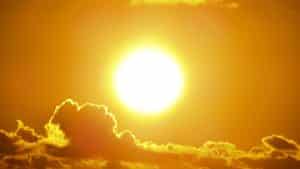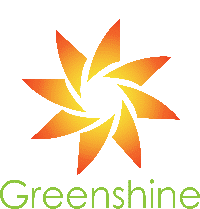The Cost of High Temperatures on Solar LightingPosted by Stephen Shickadance in The Basics.
We hate to use a cliché, but weather isn't a drop in a bucket. We've got our best solar street lighting in some of the most unkind places in regards to wind, rain, snow, and heat. We've even talked about how snow can harm solar efficiency in the past. For this particular topic today, we'll be talking about how heat can affect solar lighting health and how to prevent high temperatures affecting your solar installation. Solar Lighting and HeatWhat Heat Does to Your Solar Street Lighting SystemsThere's a bit of a conundrum in solar energy. Panels operate best where they receive optimal light, but that also suggests they receive a lot of heat simultaneously--which means solar efficiency drops. With each solar street light installation, there's what's called a temperature coefficient. As the temperature of a solar panel increases, the power output actually decreases. Pay attention to the temperature coefficient, which sates per every 1 degree in Celsius that the panel rises above 25 Celsius, the power output drops (generally). So if your panel is rated at a -.189 degree power rating, every degree it rises results in a .189 percent power loss. A single degree isn't very significant, but as a panel's temperature rises it will eventually produce significantly less power. What to Do Against Rising Temperatures for SolarLuckily, Greenshine New Energy develops the best solar street lighting against the dangers of high heat. Environments that reach 110 degrees Fahrenheit every now and then won't affect your solar street lighting systems, but if there's a constant exposure in that kind of environment, our engineers can step in and devise systems to protect from such detrimental climates. It's a catch-22 with solar power because solar panels operate best in sunny environments, but tend to lose power efficiency when they get hot--in sunny environments. We do our best to combat heat and find the narrow middle for our solar systems to operate. Contact us to learn more about what we can do for you.
The Basics
|
ArchivesNo Archives Categories
Want More Info? |
LATEST NEWS & ARTICLES
